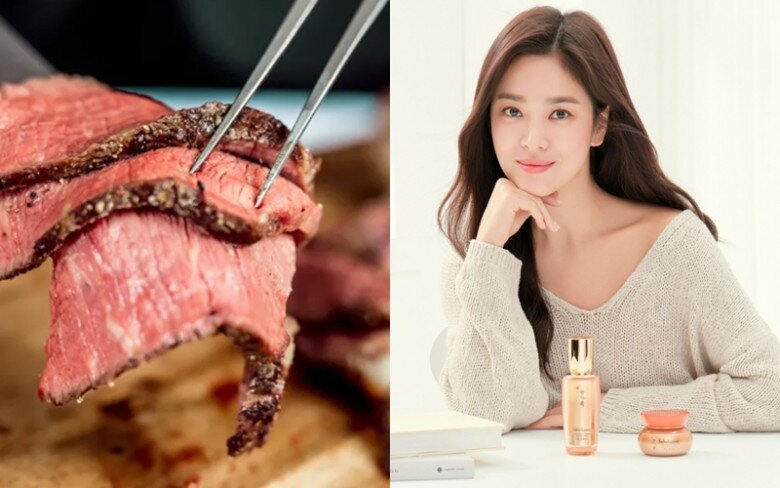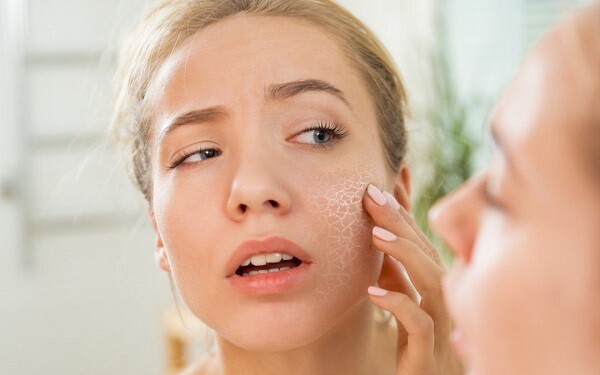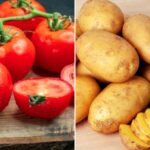There are opposing views on whether a diet rich in meat or vegetables is more beneficial for health and skin. While some argue that meat contains high levels of fat, others believe that excessive vegetable consumption can lead to a protein deficiency. So, which is it? Let’s explore the impact of both on our skin and determine which will give us that radiant glow.
How Does Eating Meat Affect Your Skin?
Pros:
Animal skin is rich in collagen, so consuming meat, especially the skin, can slow down skin cell aging and prevent wrinkles to a certain extent. Meat also contains selenium, which helps to fight premature aging. Studies have shown that the presence of abundant fatty acids in meat can protect our skin, bones, hair, and teeth from various dangers. These fatty acids shield the skin from UV rays and restore moisture, resulting in a natural glow.
Meat consumption is also linked to the improvement of various skin conditions, such as psoriasis, eczema, and dermatitis. Vitamin A in meat is excellent for strong bones, teeth, and healthy skin and eyes. Meat from ruminant animals (grass-fed) is rich in omega-3 fatty acids, beneficial for healthy skin and hair.

Meat contains collagen and fatty acids beneficial for anti-aging.
Some types of meat are particularly beneficial for skin health, such as:
– Salmon: This fish is fantastic for your skin due to its high omega-3 fatty acid content, which helps reduce inflammation and keeps your skin hydrated.
– Chicken: Another excellent source of protein, chicken helps maintain healthy skin. It’s also a good source of niacin, an antioxidant that protects your skin from damage.
Cons:
While meat is an important part of our diet, excessive consumption can be detrimental to the skin. Red meats, such as beef, pork, and lamb, are high in fat and produce free radicals. These unstable molecules can trigger a process that leads to cell damage, affecting the skin’s ability to protect itself and produce collagen.
Additionally, animal products can increase uric and lactic acid levels in the blood. When lactic acid is excreted through sweat, it continuously corrodes the surface cells of the skin, causing a loss of elasticity and leading to dryness, roughness, and the formation of spots and other issues.

Processed meats, when consumed in excess, can accelerate skin aging and exacerbate acne.
Moreover, meats like beef and chicken contain leucine, an amino acid that can stimulate sebum production, leading to clogged pores and acne. The most dangerous type of meat is processed meat, which can cause or worsen acne. Excessive consumption of processed meats can also lead to premature skin aging due to the presence of preservatives called sodium nitrates. These break down collagen and elastin, the primary proteins that give our skin its shape, structure, and elasticity. The degradation of these essential proteins can result in the formation of wrinkles, making you look older than your age.
How Does Eating Vegetables Affect Your Skin?
Pros:
Vegetables are a rich source of nutrients that offer countless benefits for your skin. Here’s how they contribute to skin health:
– Rich in antioxidants that protect the skin: Vegetables like carrots, spinach, and sweet potatoes are loaded with antioxidants such as beta-carotene and vitamin C. These antioxidants neutralize harmful free radicals in the skin, preventing premature aging and reducing the risk of skin cancer.
– Hydration and moisture enhancement: Many vegetables are excellent water sources, crucial for maintaining skin moisture. Well-hydrated skin looks plump and youthful, while dehydration can lead to dryness, flaking, and wrinkles.
– Collagen production: Bell peppers, broccoli, and kale are rich in vitamin C, essential for collagen production. A diet high in vitamin C can help keep the skin firm and supple.

Vegetables are rich in vitamins and antioxidants, which help prevent aging, wrinkle formation, and enhance skin moisture.
– Anti-inflammatory properties: Dark leafy greens like kale and spinach contain anti-inflammatory compounds that can soothe irritated skin conditions such as acne, eczema, and psoriasis.
– Sun protection: Some vegetables, like tomatoes, are rich in lycopene, a natural sun-protecting carotenoid. While it doesn’t replace sunscreen, adding lycopene-rich foods to your diet can provide an extra layer of defense against UV damage.
– Detoxification: Cruciferous vegetables like broccoli, cauliflower, and Brussels sprouts support liver detoxification. Efficient toxin removal can lead to brighter and healthier skin.
– Gut health: A healthy gut microbiome is associated with healthy skin. Vegetables, especially those high in fiber, promote a balanced gut bacteria environment, which can help reduce skin issues like acne and rosacea.
Cons:
Rarely does vegetable consumption negatively affect the skin, unless one excessively consumes vegetables while neglecting to include meat in their diet. A meat-restricted diet can lead to nutritional deficiencies that adversely affect the skin. These include:
– Vitamin B12: This vitamin is crucial for skin health. Deficiency can result in skin issues such as hyperpigmentation, hair loss with itching, eczema, and vitiligo.
– Omega-3 Fatty Acids: Fatty acids like EPA and DHA are essential for healthy skin. These are mainly found in fish and shellfish. A lack of EPA and DHA can impact skin moisture, elasticity, and inflammatory response.
– Iron: Iron deficiency can lead to pale skin, itching, and increased susceptibility to skin infections such as impetigo, boils, and candida.

A meat-free diet can lead to nutritional deficiencies, causing dry skin and a loss of elasticity.
– Zinc: Zinc plays a vital role in wound healing, collagen formation, regulating sebum production, and maintaining healthy skin structure. Low zinc levels can contribute to skin issues like acne, eczema, and delayed wound healing.
– Iodine: Insufficient iodine intake can be a concern for those who don’t consume fish/seafood, dairy, or eggs. It can lead to dry, flaky skin and hair loss.
– Protein: Protein is essential for the skin and plays a crucial role in collagen production.
So, Which Is Better for Your Skin, Meat or Vegetables?
As evident from the examples above, it’s not about choosing one over the other but rather about maintaining a balanced diet. Both meat and vegetables are essential for our bodies and our skin. Therefore, it’s best to include a variety of both in your meals to ensure your skin receives all the necessary nutrients. This way, your skin will naturally achieve that radiant, smooth, and healthy glow.
“Facial Massage: The Secret to Glowing, Healthy Skin”
Facial massage is an ancient technique that has been practiced for centuries, and our unique approach targets the face and neck to enhance circulation and promote skin health. With precise and gentle manipulations, this specialized massage improves skin texture, leaving your complexion radiant and smooth.





































